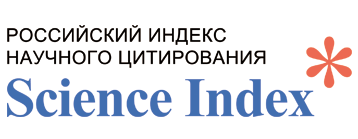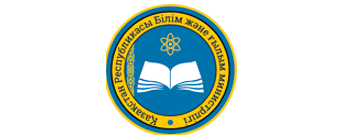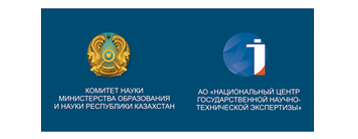Publishing ethics
The Editorial Board and Editor-in-Chief of the scientific journal the “Chemical Journal of Kazakhstan” (hereinafter referred to as the Journal) adhere to the accepted international standards of the “Committee on Publication Ethics” (Committee on Publication Ethics – COPE) (http://publicationethics.org/about), the “European Association of Science Editors” (European Association of Science Editors – EASE) (http://www.ease.org.uk) and the “Committee on Scientific Publication Ethics” (http://publicet.org/code/).
To avoid unfair practices in the publishing activities (plagiarism, false information, etc.) and in order to ensure the high quality of the scientific publications and public recognition of the scientific results, obtained by the author, the members of the Editorial Board, authors, reviewers, as well as institutions, involved in the publishing process, are obliged to comply with ethical standards, rules and regulations, and take all measures to prevent their violation. The compliance with the rules of the scientific publication ethics by all process participants contributes to ensuring the rights of authors to intellectual property, improving the quality of the publication and excluding the possibility of misuse of the copyrighted materials in the interests of the individuals.
All scientific articles submitted to the editors are subject to mandatory double-blind peer reviewing. The Editorial Board of the Journal determines the compliance of the article with the specificity of the Journal, the registration requirements and sends it for the first reviewing to the Executive Secretary of the Journal, who determines the scientific value of the manuscript and appoints two independent reviewers – the specialists with the scientific specializations closest to the topic of the article. The articles are reviewed by the members of the Editorial Board and the Editorial Staff, as well as the invited reviewers from the other countries. The decision to choose one or another reviewer for reviewing the article is made by the Editor-in-Chief. The reviewing period is 2-4 weeks, though at the request of the reviewer, it can be extended, but no more than for 2 weeks.
The editors and the reviewer guarantee the confidentiality of the unpublished materials submitted for reviewing. The decision to publish is made by the Editorial Board of the Journal after reviewing. If necessary (the presence of comments by the editor(s) and/or reviewer(s)) the manuscript is sent to the authors for revision, after which it is re-reviewed. The editors reserve the right to reject from the publication of the article in case of violation of the rules of ethics. The Executive Editor should not allow the information to be published if there is sufficient reason to believe that it is plagiarism.
The authors guarantee that the materials, submitted to the editors are new, previously unpublished and original. The authors are responsible for the reliability and significance of the scientific results, as well as compliance with the principles of scientific ethics, in particular, the prevention of violations of scientific ethics (fabrication of the scientific data, falsification leading to distortion of the research data, plagiarism and false co-authorship, duplication, appropriation of other people's results, etc.).
The submission of an article to the editor means that the authors did not submit the article (in the original or translated into or from the other languages) to the other Journal(s), and that this material was not previously published. Otherwise, the article is immediately returned to the authors with the wording “Reject the article for the copyright infringement.” The word-for-word copying of more than 10 percent of the work of another author is not allowed without indicating his authorship and references to the source. The borrowed fragments or statements should be drawn-up with the obligatory indication of the author and source. Excessive borrowing, as well as plagiarism in any form, including inaccurate quotations, paraphrasing, or appropriation of the rights to the results of the other people's research, is unethical and unacceptable. It is necessary to recognize the contribution of all persons, who in one way or another influenced the course of the research, in particular, the article should provide links to the works, which were important in the research conduction. Among the co-authors, it is unacceptable to indicate persons, who did not participate in the research.
If the author(s) finds an error in the work, it is necessary to immediately notify the editor thereof, and together decide on the correction.
The decision to refuse from the publication of the manuscript is made at a Meeting of the Editorial Board, taking into account the recommendations of the reviewers. An article, which is not recommended by the decision of the Editorial Board for the publication, is not accepted for re-consideration. A notice of the refusal to publish is sent to the author by e-mail.
After the Editorial Board of the Journal makes a decision on the admission of the article for the publication, the Editorial Board informs the author thereof, and specifies the terms of the publication. The original reviews are kept in the Editorial Office of the Journal for 3 years.

















